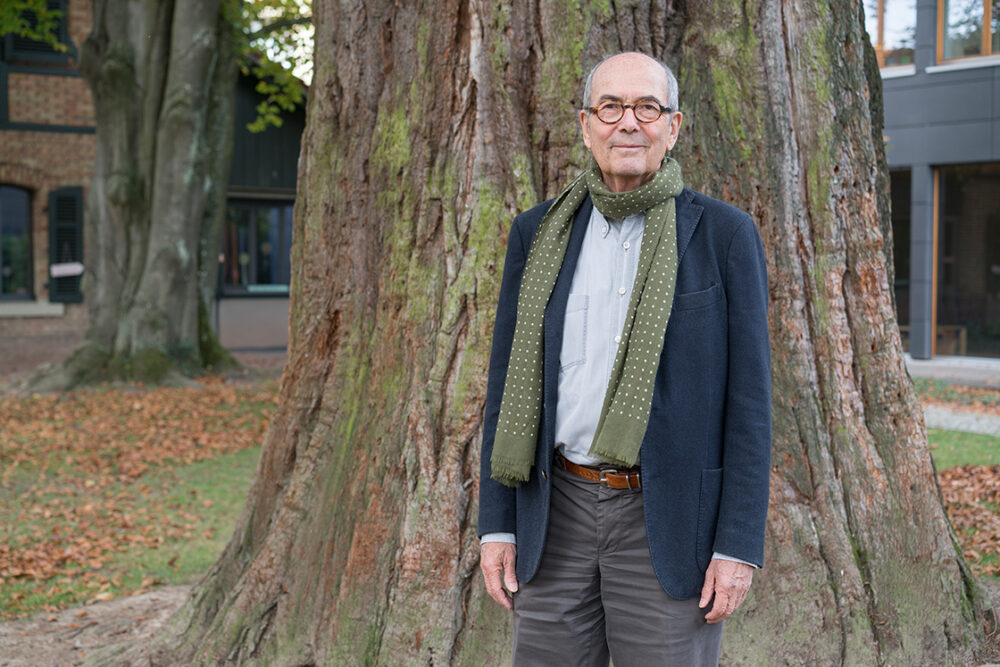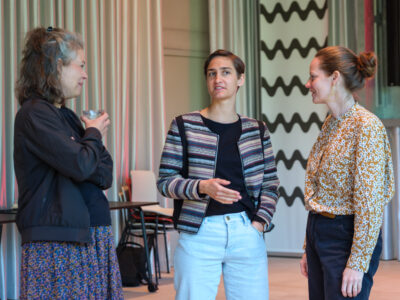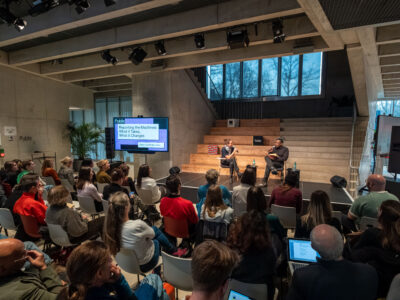“We have a culture to defend!“
Publix is an initiative of the Lörrach-based Schöpflin Foundation. Founder, Hans Schöpflin, tells Maria Exner how protesting in the USA turned him into a philanthropist, and why he invests in journalism.

Hans Schöpflin is an entrepreneur and Chairman of the Board of the Schöpflin Foundation. He was born in 1941 to a family of entrepreneurs from Lörrach who made business history with their mail order company founded in 1907. Hans Schöpflin spent 40 years in the USA, first as an executive and then as a successful entrepreneur.
Mr Schöpflin, you’ve had a long career as an entrepreneur and investor, what does journalism mean to you?
I’ve always enjoyed reading the papers, I’ve always been interested in politics and topics concerning civil society. That said, I must admit that I’ve only ever taken to the street as an activist once. That was in 2001, I was at the Summit of the Americas in Quebec with the anti-globalisation movement. We went and raised our voices against the fact that large corporations had been consolidating their power and were intent on further exploitation. I experienced police brutality first hand with tear gas, water cannons, and so on. I was radicalized within two days.
Was that a turning point for you?
Definitely, the intense discussions around globalisation that followed the WTO conference in Seattle in 1999 were a real jolt in terms of how I looked at and thought about things until then. It became clear to me that you can’t sit on the fence about these things, you need to have an opinion and to stand up for it. And that is simply not possible without a free press that covers the news from a variety of perspectives. What does freedom of expression mean? What does freedom of assembly mean? These are actually rather fragile things.
Do you remember if there were particular positions or perspectives that you felt were lacking in media coverage concerning globalisation at that time?
Globalisation wasn’t questioned at all, and the damage it causes was only really addressed by the NGOs that were dealing with it seriously, scrutinizing corporations who would abuse their power under the guise of free trade, for example. It was then that I experienced for the first time what it’s like to have a view that does not line up with the current government and the mass media.
Was that what made you – as a philanthropist still living in the United States – want to support independent journalistic projects and institutions?
Yes, that’s how it started. Shortly thereafter, I met with journalist, Amy Goodman, who was well known for “Democracy Now”. She and I funded educational programmes for journalists. I went on to support the founders of the “Radio Ambulante” podcast, who had been working in the US to provide Spanish-language news content since 2012. I then became involved with “Voice of San Diego”, however, and that was a very important experience for me. I had been living in San Diego at the time and saw for myself what happens when investors buy up, exploit, and essentially ruin a local media outlet, it’s the same thing Elon Musk is doing with Twitter today. In the absence of any reliable local newspapers, I supported the launch of “Voice of San Diego”, a digital media platform providing local content. It has since grown to include more than 100 local media outlets across the USA, all charitably funded.
You’ve been funding Correctiv here in Germany for some ten years now, in addition to a number of other organisations that provide journalists with further education as well as critical facilities and equipment. What would you say are the requirements to receive funding from the Schöpflin Foundation?
Well, it’s hard to say which comes first: the people involved, the problem they tackle, or the idea behind it. I think it starts with the problem. If I go around thinking about an issue that’s particularly important to me, there’s a sort of osmosis that occurs, suddenly I’ll meet someone working in that area, or I’ll find the right doors opening. Where I’m involved in deciding who receives funding, I rely on my own experiences and on what I’ve learned from past mistakes. Above all, though, I rely on my intuition. It’s not always about finding high flyers but rather about people’s enthusiasm for a particular issue, their curiosity. Combine that with drive and with a certain determination, a certain stubbornness… that needs to be there for me to take the risk of backing something.
There’s no guarantee it will work out, of course, but as long as you’re right 50 percent of the time, you’ll be successful.
Does that apply to both business and philanthropy?
It’s the same thing as far as I’m concerned. You get responsible managers and entrepreneurs just as you get irresponsible ones. Unfortunately, the irresponsible ones get a lot more attention, which is why the business world has such a bad reputation.
Does the political orientation of a media project play a role when you, or the Schöpflin Foundation, make funding decisions?
It’s important to me that people can get information from a variety of perspectives. Ideally, there should be real biodiversity in the media, so to speak. That’s an incredible asset. It’s not a question of progressive and conservative, nor left or right. Every position can be dogmatic. Fundamentally, I’m against dogma and in favour of diversity.
I think that can be seen in the investments the Foundation makes in journalistic endeavours.
I agree. By funding Netzwerk Recherche, for example, we support the real labour of journalism in a bid to provide well-researched news. Again, it’s not a question of upholding a particular political position. Take the new Media Forward Fund – which we co-founded – they promote the development of viable business models for media organisations that bridge specific gaps in news coverage, such as in local news, for example. The goal is to provide everyone with access to reliable information from a broad range of perspectives.
As the head of a funding body, how do you ensure the independence of the editorial offices and journalists you invest in is maintained?
By never trying to get involved when it comes to content. That would be simply unacceptable. I believe in the people I choose to support and I give them full autonomy. We can’t just turn up and say: “you should do a piece on this topic”. What we can say is: “take a look at this, do you think it’s a topic that might interest you?” That way, we start a conversation but we don’t exert any influence.
As part of its support for independent media, the Schöpflin Foundation has now brought Publix into being. What would you like to see happening here?
I’d like to see journalism flourishing and the content improving with every piece of research carried out. Again and again, we find political and economic interests interfering in journalistic practice. Ultimately, money exerts enormous influence.
At the same time, a lot of privately funded and quality media outlets long adhered to very effective standards. The financial and the editorial sides of things were kept strictly separate.
Absolutely, but current economic constraints have clearly been undermining those principles. With resources so scant, the dependence on advertising customers and financial backers increases.
Of course, you’re a financial backer yourself.
That’s true but the difference is that our funding model seeks to reinstate this separation that you mentioned between economic and editorial concerns, to really place it front and centre. We want to bolster journalistic freedoms and establish a broad range of opinions. Philanthropic support is perhaps the best way to prevent any interference when it comes to content. It is a fundamental part of foundations’ DNA to support funding recipients in their independence. At least, that’s the proven practice of the Schöpflin Foundation.
In Germany, there aren’t many Foundations left that invest in journalism. A total of eleven founders have had to pool their money in the Media Forward Fund, for example. What can we do next?
Independent journalism is so fundamental to the survival of civil society, for our democracy. That’s my plea to existing foundations: come to your senses! Ideally, each and every foundation would dedicate five to ten percent of its funding to journalistic projects. We’ve fought hard for our democracy in the last 200 years, we have a culture to defend. There’ve always been ups and downs but what sense is there in giving up the ghost now?
Photo: ©Arno Dietsche

